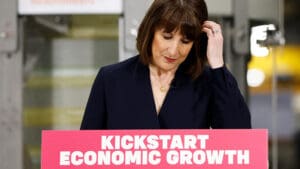Employees returning to work after cancer treatment must be actively involved in how their reintegration is managed, according to new research that warns current HR support structures are too rigid and often fail to reflect the lived reality of survivors.
A study from NEOMA Business School, conducted in collaboration with IAE Lyon, found that traditional mechanisms such as recognised disability status (RQTH in France), reduced working hours and remote working only address surface-level needs, overlooking the deeper physical, cognitive and emotional changes that often follow a cancer diagnosis.
The research, based on a two-year action project involving 25 organisations and nearly 200 participants, explored how employees navigate their professional lives after treatment, highlighting a gap between employer policies and employee experience.
Professor Rachel Beaujolin (NEOMA) and Associate Professor Pascale Levet (IAE Lyon) found that returning to work after cancer involves a profound process of adaptation rather than a simple reactivation of previous routines.
Survivors frequently report:
• Persistent fatigue
• Reduced concentration and cognitive changes
• Altered time perception
• A re-evaluated relationship with work and purpose
“Returning means relearning to work,” the authors note, often within a body and mindset that no longer responds as it once did.
The researchers describe many survivors’ time away from work as an experience of “abduction” — being abruptly taken out of their professional environment. Upon return, even familiar tasks can feel newly complex or overwhelming. However, this disruption can also be a powerful catalyst for learning and new practices.
To support this transition effectively, the study recommends creating reflection spaces and narrative-based workshops that allow employees to express and share their challenges and learning journeys in a structured environment. These insights can then inform collective practices and managerial approaches.
Given the diverse nature of cancer treatments and individual experiences, the researchers argue that standard protocols often fall short.
“It is not about proposing a standard protocol, but about learning to think from real situations,” says Professor Beaujolin. “We must recognise the knowledge being built through these experiences, and create spaces where this knowledge can circulate.”
With survival rates increasing and more employees choosing to work before, during and after treatment, employers face growing expectations to provide meaningful, human-centred reintegration strategies. Beyond compliance with legal frameworks, this research suggests that effective return-to-work support requires listening, adaptability and co-creation with the employee.
The study, published in Revue Française de Gestion, signals a growing shift in HR thinking — from procedural support to partnership-based recovery models that honour the voice and agency of survivors.

















